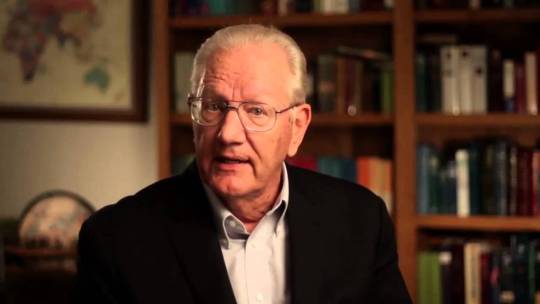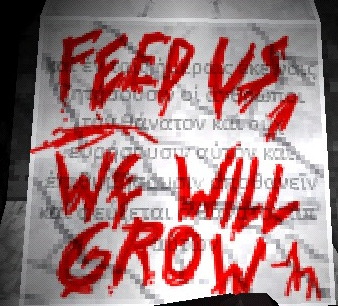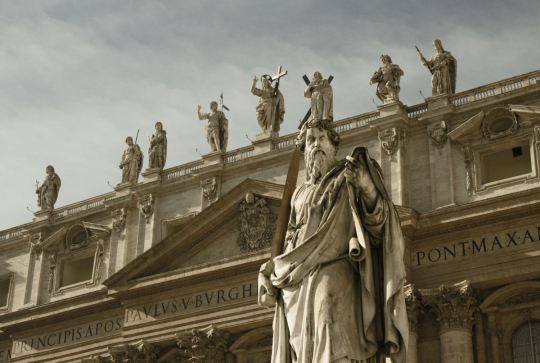#Textus Receptus
Text
0 notes
Text
History Of Bible Translation Dr. Donald Brake
History Of Bible Translation Dr. Donald Brake
What Is It?
The YouTube video History Of Bible Translation Dr. Donald Brake by the YouTube channel New Living Translation:
History Of Bible Translation Dr. Donald Brake
Description:
Dr. Donald Brake is an authority on the history of the Bible and has been an avid collector of rare Bibles and manuscripts for more than thirty years.
His is one of…

View On WordPress
#Bible#Bible Translation#Christianity#Dr. Donald Brake#Erasmus#Geneva Bible#History#History Of Bible Translation Dr. Donald Brake#King James Version#New Living Translation#Textus Receptus#Translation#Tyndale Bible#William Tyndale
0 notes
Photo

ος εστιν εικων του θεου του αορατου πρωτοτοκος πασης κτισεως
(The Son is the image of the invisible God, the firstborn over all creation.)
— Colossians 1:15 | Stephen’s Textus Receptus 1550 (STR1550)
The Textus Receptus 1550 Greek text is best known as the basis for the King James Version or Authorized Version completed in the year 1611.
Cross References: Psalm 89:27; John 1:1; John 1:18; John 14:9; Romans 8:29; 2 Corinthians 4:4; 1 Timothy 1:17
#Jesus#firstborn#creation#image of God#Colossians 1:15#The Epistle of Colossians#New Testament#STR1550#Stephen’s Textus Receptus 1550#Holy Bible#Greek language
9 notes
·
View notes
Text
note: ultrakill violence spoilers below!
I figured out the text on the tablet in 7-3; it appears to be biblical text from revelation 9:6! (caveat, I don't know greek beyond the alphabet, but the text seems to match)
this is a verse which translates to (in one popular edition of the bible) "in those days men will seek death and will not find it; they will desire to die, and death will flee from them"
the greek text is "καὶ ἐν ταῖς ἡμέραις ἐκείναις ζητήσουσιν οἱ ἄνθρωποι τὸν θάνατον καὶ οὐχ εὑρήσουσιν αὐτόν καὶ ἐπιθυμήσουσιν ἀποθανεῖν καὶ φεύξεται ὁ θάνατος ἀπ᾽ αὐτῶν"
reference for the bible text refer to the section "TR" (textus receptus) for the greek: https://www.blueletterbible.org/verse/mgnt/rev/9/6/
compare with a screenshot of the text

#ultrakill#ultrakill spoilers#ultrakill violence spoilers#this took me maybe longer than it had to but enjoy
147 notes
·
View notes
Text

Let this sink in Catholics, as well as anyone who isn't sure which Bible to read.
The catholic church, for CENTURIES, tortured, burned at the stake, beheaded, slaughtered entire villages and groups of people for translating, reading, and publishing what is known as the Textus Receptus (Recieved Text of Hebrew and Greek).....the text that lead up to the Geneva Bible and then the King James Version.
Over 50 MILLION MEAN, WOMEN, AND CHILDREN...murdered. even up until the mid 1800's the tortures and murders were happening beneath the vatican.
And why? Because the Received Text (KING JAMES VERSION) ABSOLUTLEY 100% COMPLETELY DESTROYS THE "LEGITIMACY" AND MAN MADE DOCTRINES OF THE CATHOLIC CHURCH!! A popes authority, gone! Prayers to Mary, Saints, the dead, gone! PAGAN HOLIDAYS, GONE! Man made traditions and doctrines, Gone! Infant baptism, Gone! Confessing of sins to a priest, Gone! Rituals, statues, rosary, vain repetitions of prayer, all GONE!!!
But here is the pope, condemning the burning of a book that completely denies the divinity of Jesus Christ.
The vatican owns governments, and most all churches. Either through 501c3 status or infiltration. Billions are being lead to the slaughter and they cant put two and two together.
Repent and come out of these churches before its too late.
50 notes
·
View notes
Note
Why don't you read the King James Bible? I am not a Native English speaker and don't find it that hard to read. It is from the correct Greek text, the Textus Receptus. While the modern versions originate from an altered text by Westcott and Hort.
Are you willing to use the NKJV or another updated translation based on the same manuscripts? If not, then you are being inconsistent.
The manuscripts are not what was inspired by God. The original authors were inspired by God in what they originally wrote and by God’s sovereign grace we have many copies of what they wrote to depend on in translating them into the common language of all peoples.
No translation will be an exactly perfect match. It takes serious study to continually refine our interpretation and it’s through that process God helps the meaning work its application in our hearts. There is liberty for Christians to use a variety of translations that seek to be faithful to the copies we have as much as possible. The more translations the better because it means more study.
3 notes
·
View notes
Text
I forgot how fun it is to say "Textus Receptus", I think people would read the New Testament more if we still called it that.
2 notes
·
View notes
Text
i hate the textus receptus.
2 notes
·
View notes
Text

Revelation 22:19 says, “And if any man shall take away from the words of the book of this prophecy, God shall take away his part out of the book of life, and out of the holy city, and from the things which are written in this book” (KJV). This verse is usually involved in the debate concerning eternal security. Does Revelation 22:19 mean that, after a person’s name is written in the Lamb’s Book of Life, it can at some time in the future be erased? In other words, can a Christian lose his salvation?
First, Scripture is clear that a true believer is kept secure by the power of God, sealed for the day of redemption (Ephesians 4:30), and of all those whom the Father has given to the Son, He will lose none of them (John 6:39). The Lord Jesus Christ proclaimed, “I give them eternal life, and they shall never perish; no one can snatch them out of my hand. My Father, who has given them to me, is greater than all; no one can snatch them out of my Father’s hand” (John 10:28–29b). Salvation is God’s work, not ours (Titus 3:5), and it is His power that keeps us.
If the “anyone” referred to in Revelation 22:19 are not believers, who are they? In other words, who might want to either add to or take away from the words of the Bible? Most likely, this tampering with God’s Word would be done not by true believers but by those who only profess to be Christians and who suppose that their names are in the Book of Life. Generally speaking, the two main groups who have traditionally tampered with God’s revelation are pseudo-Christian cults and those who hold to very liberal theological beliefs. Many cults and theological liberals claim the name of Christ as their own, but they are not “born again”—the definitive biblical term for a Christian.
The Bible cites several examples of those who thought they were believers, but whose profession was proven to be false. In John 15, Jesus refers to them as branches that did not remain in Him, the true Vine, and therefore did not produce any fruit. We know they are false because “by their fruits you shall know them” (Matthew 7:16, 20); true disciples will exhibit the fruit of the Holy Spirit who resides within them (Galatians 5:22). In 2 Peter 2:22, false professors are dogs returning to their own vomit and a sow who “after washing herself returns to wallow in the mire” (ESV). The barren branch, the dog, and the pig are all symbols of those who profess to have salvation, but who have nothing more than their own righteousness to rely upon, not the righteousness of Christ that truly saves. It is doubtful that those who have repented of their sin and been born again would willingly tamper with God’s Word in this way—adding to it or taking from it. Purposefully corrupting God’s Word reveals a lack of faith.
There is another important consideration about the meaning of Revelation 22:19, and it involves translation. Most manuscripts do not even mention the “book of life”; instead, they have “tree of life.” Here is how Revelation 22:19 reads in the NIV: “If anyone takes words away from this scroll of prophecy, God will take away from that person any share in the tree of life and in the Holy City, which are described in this scroll.” Other translations with “tree” instead of “book” are the NASB, ESV, NLT, HCSB, ISV, NET, and ASV, among others. The KJV stands nearly alone in translating it as the “book” of life. The error arose when Erasmus, in compiling his Greek text, was forced to translate the last six verses of Revelation from the Latin Vulgate into Greek. The “tree” became a “book” because a scribe had accidentally replaced the Latin lingo (“tree”) with libro (“book”). All translations that follow the Textus Receptus, such as the KJV, thus incorrectly say “book” instead of “tree” of life.
Arguing for the “tree of life” translation instead of the “book of life” translation are two other verses in the same chapter: Revelation 22:2 and 14. Both mention the “tree of life” and the “city” together, the same as verse 19 does. Also, the word portion or share is significant. The one who corrupts the Word of God will be deprived of access to the tree of life, despite whatever claim he thinks he has to that fruit.
Revelation 3:5 is another verse that impacts this issue. “He who overcomes . . . I will never blot out his name from the book of life.” The “overcomer” mentioned in this letter to Sardis is the Christian. Compare this with 1 John 5:4: “Everyone who is born of God overcomes the world.” And verse 5: “Who is he that overcomes the world? Only he who believes that Jesus is the Son of God.” (See also 1 John 2:13.) All believers are “overcomers” in that they have been granted victory over the sin and unbelief of the world.
Some people see in Revelation 3:5 the picture of God’s pen poised, ready to strike out the name of any Christian who sins. They read into it something like this: “If you mess up and don’t win the victory, then you’re going to lose your salvation! In fact, I will erase your name from the Book of Life!” But this is NOT what the verse says. Jesus is giving a promise here, not a warning.
Never does Scripture say that God erases a believer’s name from the Lamb’s Book of Life—there is never even a warning that He is contemplating it! The wonderful promise of Revelation 3:5 is that Jesus will NOT erase one’s name. Speaking to the “overcomers”—all those redeemed by the blood of the Lamb—Jesus gives His word that He will not delete their names. He affirms that, once a name is there, it is there forever. This is based on the faithfulness of God.
The promise of Revelation 3:5 is directed to believers, who are secure in their salvation. In contrast, the warning of Revelation 22:19 is directed to unbelievers, who, rather than change their hearts toward God, attempt to change God’s Word to suit themselves. Such people will not eat of the tree of life.
3 notes
·
View notes
Text
Asia Minor and Early Apostolic Succession
@bible-news-prophecy-radio
According to the words of Jesus and the Apostle Paul, was it possible for one city to be the continuous headquarters of the true Christian church for centuries? Where did Hippolytus of Rome and 'Fox's Book of Martyrs' say that the original apostles went? What about Europe, the British Isles India, China, Malaysia, Egypt, Africa, Iran, Antioch, and Asia Minor? Where were most of the books of the New Testament written to or from? Where did the last of the twelve apostles die? What were some of the early apostolic teachings that many changed? What about the change to Sunday? Were Gentiles keeping the Sabbath in the late second century? What about Passover on the 14th? Was Justin Martyr faithful or heretical? What about Melito and Polycrates? Was the Ephesian-dominated era replaced by that of Smyrna? What about binitarianism, millenarianism, and Sabellism? Who were the two possible groups with apostolic succession according to Tertullian? Were there bishops or elders in early Rome? Could apostolic succession passed from John (believed to be the the last of the original apostles to die) to Polycarp of Smyrna? Which early leaders had apostolic succession? Could the headquarters of the most faithful church have moved from Jerusalem to Antioch to Asia Minor to Arsinoe to Antioch to Armenia to the Balkans to elsewhere in Europe to the British Isles and then to North America? Dr. Thiel address these matters and more.
Three items of related interest may include:
The article: 'Location of the Early Church: Another Look at Ephesus, Smyrna, and Rome'
And the free online book titled 'Beliefs of the Original Catholic Church: Could a remnant group have continuing apostolic succession?'
The Continuing Church of God is NOT Greco-Roman Catholic, but neither is it Protestant. For some of the reasons why we are NOT Protestant, check out the free online book, Hope of Salvation: How the Continuing Church of God Differs from Protestantism.
youtube
Sermon video link: Asia Minor and Early Apostolic Succession
Related Items:
Location of the Early Church: Another Look at Ephesus, Smyrna, and Rome What actually happened to the primitive Church? And did the Bible tell about this in advance? Here are links to two related sermons: Early Church: Jerusalem, Rome, and Apostolic Teachings and Asia Minor and Early Apostolic Succession.
Beliefs of the Original Catholic Church. Did the original “catholic church” have doctrines held by the Continuing Church of God? Did Church of God leaders uses the term “catholic church” to ever describe the church they were part of? Here are links to related sermons: Original Catholic Church of God?, Original Catholic Doctrine: Creed, Liturgy, Baptism, Passover, What Type of Catholic was Polycarp of Smyrna?, Tradition, Holy Days, Salvation, Dress, & Celibacy, Early Heresies and Heretics, Doctrines: 3 Days, Abortion, Ecumenism, Meats, Tithes, Crosses, Destiny, and more, Saturday or Sunday?, The Godhead, Apostolic Laying on of Hands Succession, Church in the Wilderness Apostolic Succession List, Holy Mother Church and Heresies, and Lying Wonders and Original Beliefs.
Preparing for the ‘Short Work’ and The Famine of the Word What is the ‘short work’ of Romans 9:28? Who is preparing for it? Will Philadelphian Christians instruct many in the end times? Here is a link to a related video sermon titled: The Short Work. Here is a link to another: Preparing to Instruct Many.
Who Gave the World the Bible? The Canon: Why do we have the books we now do in the Bible? Is the Bible complete? Are there lost gospels? What about the Apocrypha? Is the Septuagint better than the Masoretic text? What about the Textus Receptus vs. Nestle Alland? Was the New Testament written in Greek, Aramaic, or Hebrew? Which translations are based upon the best ancient text? Did the true Church of God have the canon from the beginning? Here are links to related sermons: Let’s Talk About the Bible, The Books of the Old Testament, The Septuagint and its Apocrypha, Masoretic Text of the Old Testament, and Lost Books of the Bible, and Let’s Talk About the New Testament, The New Testament Canon From the Beginning, English Versions of the Bible and How Did We Get Them?, What was the Original Language of the New Testament?, Original Order of the Books of the Bible, and Who Gave the World the Bible? Who Had the Chain of Custody?
Proof Jesus is the Messiah This free book has over 200 Hebrew prophecies were fulfilled by Jesus. Plus, His arrival was consistent with specific prophecies and even Jewish interpretations of prophecy. Here are links to seven related sermons: Proof Jesus is the Messiah, Prophecies of Jesus’ birth, timing, and death, Jesus’ prophesied divinity, 200+ OT prophecies Jesus filled; Plus prophecies He made, Why Don’t Jews Accept Jesus?, Daniel 9, Jews, and Jesus, and Facts and Atheists’ Delusions About Jesus. Plus the links to two sermonettes: Luke’s census: Any historical evidence? and Muslims believe Jesus is the Messiah, but …
Hope of Salvation: How the Continuing Church of God Differs from Protestantism The CCOG is NOT Protestant. This free online book explains how the real Church of God differs from mainstream/traditional Protestants. Several sermons related to the free book are also available: Protestant, Baptist, and CCOG History; The First Protestant, God’s Command, Grace, & Character; The New Testament, Martin Luther, and the Canon; Eucharist, Passover, and Easter; Views of Jews, Lost Tribes, Warfare, & Baptism; Scripture vs. Tradition, Sabbath vs. Sunday; Church Services, Sunday, Heaven, and God’s Plan; Seventh Day Baptists/Adventists/Messianics: Protestant or COG?; Millennial Kingdom of God and God’s Plan of Salvation; Crosses, Trees, Tithes, and Unclean Meats; The Godhead and the Trinity; Fleeing or Rapture?; and Ecumenism, Rome, and CCOG Differences.
The MYSTERY of GOD’s PLAN Why Did God Create Anything? Why did God make you? This free online book helps answers some of the biggest questions that human have, including the biblical meaning of life. Here is a link to three related sermons: Mysteries of God’s Plan, Mysteries of Truth, Sin, Rest, Suffering, and God’s Plan, and The Mystery of YOU.
Universal OFFER of Salvation, Apokatastasis: Can God save the lost in an age to come? Hundreds of scriptures reveal God’s plan of salvation Will all get a fair chance at salvation? This free book is packed with scriptures showing that God does intend to offer salvation to all who ever lived–the elect in this age, and the rest in the age to come. Here is a link to a related sermon series: Universal Offer of Salvation 1: Apocatastasis, Universal Offer of Salvation 2: Jesus Desires All to be Saved, Mysteries of the Great White Throne Judgment (Universal Offer of Salvation part 3), Is God Fair, Will God Pardon the Ignorant?, Can God Save Your Relatives?, Babies, Limbo, Purgatory and God’s Plan, and ‘By the Mouth of All His Holy Prophets’.
Is God Calling You? This booklet discusses topics including calling, election, and selection. If God is calling you, how will you respond? Here is are links to related sermons: Christian Election: Is God Calling YOU? and Predestination and Your Selection. A short animation is also available: Is God Calling You?
Christians: Ambassadors for the Kingdom of God, Biblical instructions on living as a Christian This is a scripture-filled booklet for those wishing to live as a real Christian. A related sermon is also available: Christians are Ambassadors for the Kingdom of God.
The Ten Commandments: The Decalogue, Christianity, and the Beast This is a free pdf book explaining the what the Ten Commandments are, where they came from, how they develop love, how early professors of Christ viewed them, and how various ones, including the Beast of Revelation, will oppose them. A related sermon is titled: The Ten Commandments and the Beast of Revelation.
The Gospel of the Kingdom of God This free online pdf booklet has answers many questions people have about the Gospel of the Kingdom of God and explains why it is the solution to the issues the world is facing. Here are links to three related sermons: The World’s False Gospel, The Gospel of the Kingdom: From the New and Old Testaments, and The Kingdom of God is the Solution.
Where is the True Christian Church Today? This free online pdf booklet answers that question and includes 18 proofs, clues, and signs to identify the true vs. false Christian church. Plus 7 proofs, clues, and signs to help identify Laodicean churches. A related sermon is also available: Where is the True Christian Church? Here is a link to the booklet in the Spanish language: ¿Dónde está la verdadera Iglesia cristiana de hoy? Here is a link in the German language: WO IST DIE WAHRE CHRISTLICHE KIRCHE HEUTE? Here is a link in the French language: Où est la vraie Église Chrétienne aujourd’hui?
Continuing History of the Church of God This pdf booklet is a historical overview of the true Church of God and some of its main opponents from Acts 2 to the 21st century. Related sermon links include Continuing History of the Church of God: c. 31 to c. 300 A.D. and Continuing History of the Church of God: 4th-16th Centuries and Continuing History of the Church of God: 17th-20th Centuries. The booklet is available in Spanish: Continuación de la Historia de la Iglesia de Dios, German: Kontinuierliche Geschichte der Kirche Gottes, and Ekegusii Omogano Bw’ekanisa Ya Nyasae Egendererete.
CCOG.ORG Continuing Church of God The group striving to be most faithful amongst all real Christian groups to the word of God. There are links to literature is about 160 different languages there.
LATEST SERMONS
0 notes
Text
Holy Word - Bible, an ultimate companion
Welcome to "Holy Word", your ultimate companion for exploring the Bible in a variety of languages, including English, Hindi, French, Italian, Spanish, and Portuguese. This app is your key to accessing the Word of God in a straightforward, engaging way, offline, and with no advertisements to distract you.
"Holy Word- Bible" is designed to make your spiritual journey enlightening and accessible. With easy navigation, it features quick searches, the ability to share verses with friends, reading plans to keep you on track, and audio versions for when you want to listen to the scriptures being read. You'll find insightful articles, cross-references to connect different parts of the Bible, harmonies of the Gospels, and random verses for daily inspiration. Plus, our Interlinear tool with a strong concordance in English is perfect for those looking to dive deeper into their studies.
Our library includes a wide range of Bible versions to cater to diverse preferences and languages:
- King James Version (KJV): A classic and revered English translation.
- Louis Segond (LSG): Popular among French-speaking communities.
- Giovanni Diodati Bibbia (Diodati): An esteemed choice for Italian speakers.
- Reina-Valera (Valera): Widely read by Spanish-speaking believers.
- João Ferreira de Almeida (Almeida): A cornerstone for Portuguese-speaking readers.
- Schlachter Bibel (Schlachter): Cherished in German-speaking regions.
- Arabic Bible (Smith & Van Dyke Translation): A key version for Arabic readers.
- Hindi Bible: Bringing the Word to Hindi-speaking audiences.
- Chinese Bible (Chinese Union Version Simplified): Accessible to Chinese readers.
- Japanese Bible (New Japanese Bible 1973): For the Japanese-speaking faithful.
- Russian Bible (Russian Synodal Translation 1876): A primary source for Russian Christians.
- Hebrew Bible (Westminster Leningrad Codex): Essential for those reading in Hebrew.
- Greek Bible (Textus Receptus Stephanus 1550): For students and scholars of the Greek texts.
"Holy Word" also extends its reach to Android TV and Chromebook users, ensuring that you can engage with God's Word on your preferred device, anytime and anywhere.
Download "Holy Word" today to start a fulfilling journey through the scriptures, supported by a wide array of resources and translations designed to bring you closer to God's teachings, no matter where you are in the world or what language you prefer.
1 note
·
View note
Text
Precepts in the codex Textus Tetris Receptus Septuagint Psalms 119:100
I understand more than the ancients,
because I keep thy precepts.
0 notes
Photo

καὶ ἡ εἰρήνη τοῦ Θεοῦ8 βραβευέτω ἐν ταῖς καρδίαις ὑμῶν, εἰς ἣν καὶ ἐκλήθητε ἐν ἑνὶ σώματι· καὶ εὐχάριστοι γίνεσθε.
(And let the peace of Christ rule in your hearts, to the which also ye were called in one body; and be ye thankful.)
— Colossians 3:15 | Scrivener’s Textus Receptus 1881 (STR81)
Scrivener’s Textus Receptus 1881 by F. H. A. Scrivener.
Cross References: John 14:27; 1 Corinthians 10:17; Ephesians 2:14-15; Ephesians 2:16; Philippians 4:7; Colossians 3:17
#peace#Jesus Christ#rule#heart#thankfulness#community#Colossians 3:15#The Epistle of Colossians#New Testament#STR81#Scrivener’s Textus Receptus 1881#Holy Bible
5 notes
·
View notes
Text
Revealed: The Romans and Europeans are descendants of Esau and Japheth
Before I begin, I want to point out that the original Bible manuscripts were not written in English. The most widely used manuscript versions during the period of 3rd to 1st centuries BCE included the Septuagint, which was composed in Greek, the Peshitta, which was composed in middle Aramaic, the Textus Receptus, which was composed in Greek, and the Vulgate, which was composed in Latin. The…

View On WordPress
0 notes
Text
Apostle Thaddaeus
THADDAEUS THE APOSTLE – One of the 12 apostles (Mark 3:18). In Matthew 10:3, the Textus Receptus identifies him as “Lebbaeus, whose surname was Thaddeus” (KJV). Thaddaeus is identified with a missionary named Thaddaeus in Syria and/or associated with the noncanonical work Acts of Thaddeus.
Sometimes the apostle Thaddaeus is identified with a missionary named Thaddaeus in Syria and/or associated…
View On WordPress
0 notes